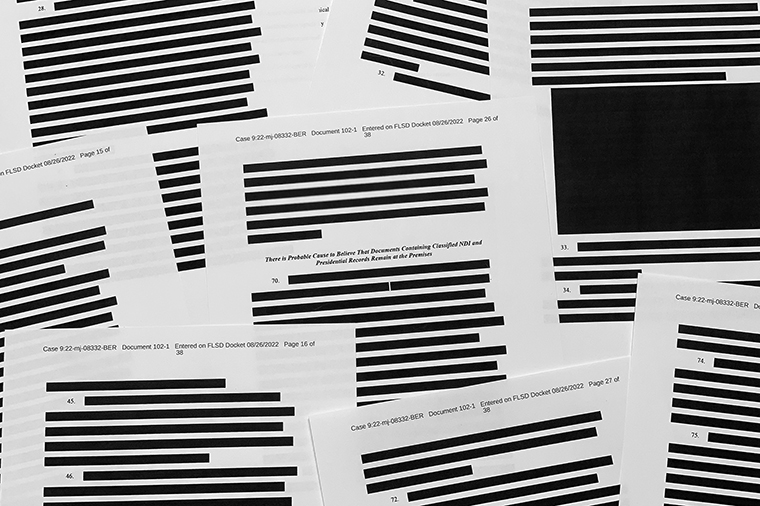
The release of a redacted affidavit that the Justice Department used to obtain a search warrant for former President Donald Trump’s Mar-a-Lago home shed new light on the federal investigation into the handling of documents from his White House.
The court filing unsealed Friday went into previously unknown detail about the classified information found in boxes retrieved from Trump’s Florida resort in January. It also firmed up aspects of the timeline about how the investigation unfolded.
The filing shows, among other things, that the documents that may have been illegally mishandled at Mar-a-Lago contained some of America’s most sensitive secrets.
Here are some key takeaways from the newly released document:
FBI said there was likely “evidence of obstruction” and classified defense documents
The FBI told US Magistrate Judge Bruce Reinhart the search would likely find “evidence of obstruction” in addition to its explanation to the court that there was “probable cause to believe” that classified national security materials were improperly taken to “unauthorized” locations at Trump’s resort.
FBI found 184 classified documents from 15 boxes earlier this year
In May, when the FBI reviewed the 15 boxes the National Archives retrieved from the Florida resort in January, it found “184 unique documents bearing classification marking,” the affidavit said.
Among the materials were “67 documents marked as CONFIDENTIAL, 92 documents marked as SECRET, and 25 documents marked as TOP SECRET,” according to the filing.
New details about how the DOJ got involved in the document fracas in the first place
The FBI investigation began after a criminal referral from the National Archives, dated Feb. 9, in which the Archives said that the boxes contained “a lot of classified records.”
The Archives official said there was “significant concern” over the fact that “highly classified records were … intermixed with other records” and weren’t properly identified.
Redactions keep obstruction evidence secret for now
The third potential crime — obstruction — that was cited by the warrant materials does not have a corresponding unredacted subhead in the affidavit. The FBI would have had to provide the court its explanation of why it believed that there was likely evidence of that crime at Mar-a-Lago, so the absence of any unredacted details about that evidence signals that that part of department is particularly sensitive about that aspect of its investigation being made public.
DOJ keeping details about personnel involved close to the chest
The department said in its legal brief justifying the memos that that the FBI personnel who had already been identified as involved in the investigation had received “threats of violence from members of the public.”
The FBI told the judge that “[m]inor but important” redactions in the affidavit were needed to “protect the safety of law enforcement personnel.”
CNN’s Jeremy Herb and Katelyn Polantz contributed to this report.

